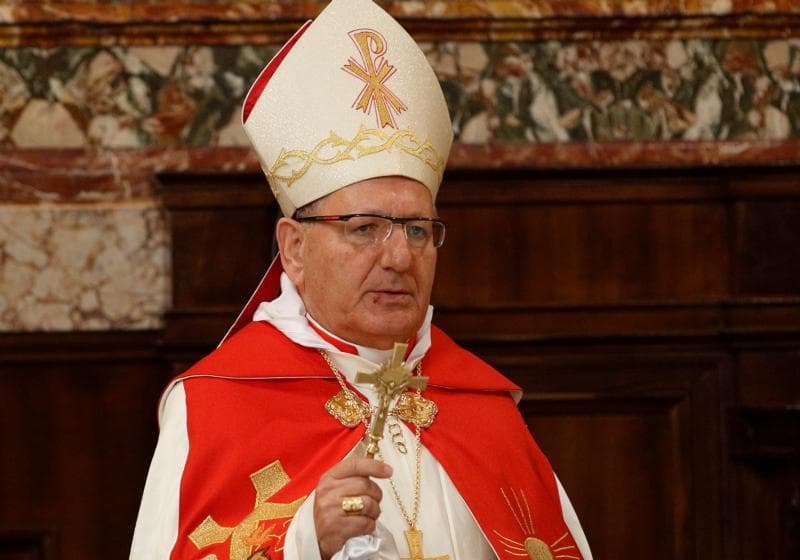ROME – One of Iraq’s leading Catholic prelates has said the quest for unity among Christians should not focus on the pursuit of uniformity but should rather embrace the diversity of the various rites and traditions in Catholicism.
These varying rites and customs, he said, should not be sources of division, but opportunities to understand and respect the rich diversity of the global Christian community.
Speaking at an event for the close of the international Week of Prayer for Christian Unity, Chaldean Patriarch of Babylon Luis Raphael Sako said the annual observance is an opportunity for God to both enlighten the heads of various Christian churches and to “soften their hearts for rapprochement and unification of discourse and ideas in the face of the challenges faced by the churches of the world and our churches in the Middle East in particular.”
The dangers Christians face in the Middle East, he said, “are a worrying existence.”
Unity in this context, he said, is essential and must be pursued “in the invisible depths of faith and spirit.”
“The law of our faith is one and our rituals are close, especially with regard to the essence of our celebrations of the seven mysteries,” but this unity “is not complete ecclesiastically, because the shape of the churches is different,” he said.
“Their geography is different, their language is different, and so on with regard to their rituals, traditions, laws, and leadership,” Sako said, but stressed that “these churches cannot be stripped of their identity.”
What is important, he said, is that “this beautiful diversity does not turn into disagreement, rivalry, and isolation.”
Unity, Sako argued, is not just an administrative pursuit, but holds a “theological, spiritual, and pastoral dimension.”
Because of this, “It is important to work to crystallize and unify some theological and doctrinal expressions,” he said, but churches must do this with a spiritual unity, “which was the desire of Christ, and it is the desire of every Christian.”
Held Jan. 18-25, the Week of Prayer for Christian Unity was established in 1908 by Paul Watson, an Anglican priest and co-founder of the Society of the Atonement. The Catholic Church joined the initiative in 1968, and has observed the annual event ever since.
The theme this year, “We saw the star in the East, and we came to worship him,” was chosen by the Middle East Council of Churches.
This year’s Week of Prayer for Christian Unity falls almost one year after Pope Francis’s historic visit to Iraq from March 5-8, 2021, which marked the first time a pope had ever set foot in the country, where Christians have long faced discrimination and violent persecution.
In his own closing vigil for the event, Pope Francis gave a special mention to Christians persecuted for their faith, saying it is “often the weakest who bring the most important message of salvation. This was what pleased God: To save us not with the power of this world, but with the weakness of the cross.”
“Even the smallest and least significant in the eyes of the world, if they experience the Holy Spirit, if they are animated by love for God and neighbor, have a message to offer to the whole Christian family,” he said.
Francis also urged Christian leaders to steer-clear of internal and partisan disputes, saying, “each community has a gift to offer to the others. The more we look beyond partisan interests and overcome the legacies of the past in the desire to move forward towards a common landing place, the more readily we will recognize, welcome and share these gifts.”
Earlier that day, Pope Francis met with President Barham Saleh of Iraq at the Vatican, where the two discussed the protection of Christian minorities in the country.
In his remarks, Sako said the pursuit of unity among Christians requires “repentance, renewal and respect, and that each church sees in the face of the other that of the one church, and strives to reach the perfection of communion.”
“We have to realize the dimensions of unity and its requirements so that each party feels its contents, so that the desire for unity is an essential part of our faith awareness and our personal and ecclesial behavior,” he said.
Sako stressed the need to respect one another and to cooperate with both “trust and sincerity,” especially in the fields of education and pastoral service, as well as in the social sector and in emergency situations.
“From this point of view, a new and in-depth reading of this diverse ecclesiastical heritage is necessary to bring ideas closer together through honest and courageous dialogue, with one heart and one evangelical spirit, as required by the current situation,” he said.
Sako closed his remarks urging the leaders of Iraq’s diverse Christian communities “to walk together in the footsteps of unity as desired by Christ.”
Follow Elise Ann Allen on Twitter: @eliseannallen














